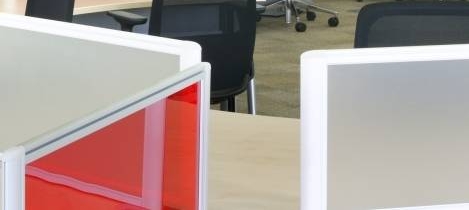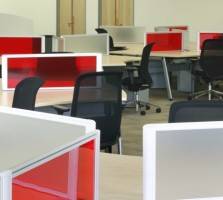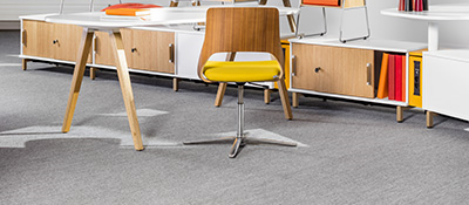August 22, 2016
Two thirds of employers don’t understand impact of workplace health issues 0
 A new study from Aon Employee Benefits claims that UK employers are less likely than other employers in the EMEA region to have a defined workplace health strategy with just 37 percent understanding the impact of their employees’ health issues. The 2016 EMEA Health Survey suggests that UK employers are less likely than others in the Europe, Middle East and Africa (EMEA) region to have a defined health strategy (30 percent vs 40 percent). The survey also claims that UK employers’ actions are out of line with their actual concerns. 63 percent believe their top issue is managing stress and mental health issues, while 51 percent suggest that physical health is their second highest health and wellbeing priority. However, more employers have physical and social programmes to support employee wellbeing (57 percent and 55 percent respectively), while just 41 percent have an emotional or psychological programme in place.
A new study from Aon Employee Benefits claims that UK employers are less likely than other employers in the EMEA region to have a defined workplace health strategy with just 37 percent understanding the impact of their employees’ health issues. The 2016 EMEA Health Survey suggests that UK employers are less likely than others in the Europe, Middle East and Africa (EMEA) region to have a defined health strategy (30 percent vs 40 percent). The survey also claims that UK employers’ actions are out of line with their actual concerns. 63 percent believe their top issue is managing stress and mental health issues, while 51 percent suggest that physical health is their second highest health and wellbeing priority. However, more employers have physical and social programmes to support employee wellbeing (57 percent and 55 percent respectively), while just 41 percent have an emotional or psychological programme in place.








 Giving employees more control over workplace design is the single most important contributing factor to their wellbeing, according to a new study. The Workplace & Wellbeing report examines the workplace design factors that influence wellbeing. The research team discovered that an invitation to participate in the design of the work environment raised levels of wellbeing, although increasing the level of participation did not necessarily increase the level of wellbeing. The research was led by the Royal College of Art’s Helen Hamlyn Centre for Design in partnership with architects Gensler and supported by a consortium of leading industry names: Milliken, Bupa, Royal Bank of Scotland, Kinnarps and Shell. The context for this project lies with a current ‘wellbeing deficit’ in the workplace which means absence from work costs the UK economy more than £14 billion a year according to the Confederation of British Industry.
Giving employees more control over workplace design is the single most important contributing factor to their wellbeing, according to a new study. The Workplace & Wellbeing report examines the workplace design factors that influence wellbeing. The research team discovered that an invitation to participate in the design of the work environment raised levels of wellbeing, although increasing the level of participation did not necessarily increase the level of wellbeing. The research was led by the Royal College of Art’s Helen Hamlyn Centre for Design in partnership with architects Gensler and supported by a consortium of leading industry names: Milliken, Bupa, Royal Bank of Scotland, Kinnarps and Shell. The context for this project lies with a current ‘wellbeing deficit’ in the workplace which means absence from work costs the UK economy more than £14 billion a year according to the Confederation of British Industry.




 The overwhelming majority of UK employees (81 percent) are working beyond their contracted hours, claims a report from recruitment firm
The overwhelming majority of UK employees (81 percent) are working beyond their contracted hours, claims a report from recruitment firm 


 There is no doubt that the UK’s office based knowledge industry is facing a crisis in the form of a ‘wellbeing deficit’. Both the Confederation of British Industry (CBI) and Health and Safety Executive (HSE) have reported record levels of absenteeism, with the latter attributing 23.3 million lost working days to work-related ill-health, such as depression, stress, anxiety and musculoskeletal disorders. A great deal is already known about the causes of the key issues of employee stress and demotivation, but more work needs to be done to establish how organisations can meet their corporate goals with regard to these issues, whilst still engaging, motivating and nurturing their workforce. A significant body of published research has identified that a sense of ‘personal control’ can have a hugely positive impact on employee wellbeing, but how can we engender that control when it comes to creating a productive working environment?
There is no doubt that the UK’s office based knowledge industry is facing a crisis in the form of a ‘wellbeing deficit’. Both the Confederation of British Industry (CBI) and Health and Safety Executive (HSE) have reported record levels of absenteeism, with the latter attributing 23.3 million lost working days to work-related ill-health, such as depression, stress, anxiety and musculoskeletal disorders. A great deal is already known about the causes of the key issues of employee stress and demotivation, but more work needs to be done to establish how organisations can meet their corporate goals with regard to these issues, whilst still engaging, motivating and nurturing their workforce. A significant body of published research has identified that a sense of ‘personal control’ can have a hugely positive impact on employee wellbeing, but how can we engender that control when it comes to creating a productive working environment?












August 17, 2016
Intelligent lighting can enhance workplace wellbeing and productivity 0
by Andy Gallacher • Comment, Environment, Facilities management, Lighting, Wellbeing, Workplace design
(more…)